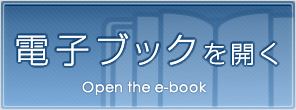「人道研究ジャーナル」創刊号 page 194/216
このページは 「人道研究ジャーナル」創刊号 の電子ブックに掲載されている194ページの概要です。
秒後に電子ブックの対象ページへ移動します。
「電子ブックを開く」をクリックすると今すぐ対象ページへ移動します。
概要:
Journal of Humanitarian Studies Vol. 1, 2012import restrictions;c. Simplify and minimize documentationrequirements for export, transit andimport;d. Permit re-exportation of any equipment orunused good....
Journal of Humanitarian Studies Vol. 1, 2012import restrictions;c. Simplify and minimize documentationrequirements for export, transit andimport;d. Permit re-exportation of any equipment orunused goods which the assisting State orassisting humanitarian organization ownsand wishes to retain.2. With regard to disaster relief goods andequipment only, originating, transit and affectedStates should additionally:a. Waive or reduce inspection requirements;where waiver is not possible, clear reliefgoods and equipment rapidly and as amatter of priority, through a pre-clearanceprocess where feasible; andb. Arrange for inspection and release outsidebusiness hours and/or at a place otherthan a customs office, as necessary, tominimize delay, in accordance with thesafety regulations of the affected State.Assisting States and eligible assistinghumanitarian organizations shouldrespect any routes and delivery pointsprescribed by the affected State.3. In order to benefit from the above facilities,assisting States and assisting humanitarianorganizations should, in accordance with agreedinternational standards, appropriately pack,classify and mark disaster relief and initialrecovery goods and equipment, and includedetailed manifests with each shipment. Theyshould additionally inspect all such goods andequipment to ensure their quality,appropriateness for the needs in the affectedState, and conformity with the national law ofthe affected State and international standards.4. Assisting States and eligible assistinghumanitarian organizations should assumeresponsibility for removing or disposing of anyunwanted and unused disaster relief and initialrecovery goods, particularly if they may pose athreat to human health or safety, or to theenvironment.すること。c.輸出、通過および輸入のための書類の要件を簡素化し、かつ、最小限にとどめること。d.支援国または人道支援組織が所有する機材または未使用の物資で、その保有を希望するものについて、再輸出を許可すること。2.起点国、通過国および被災国は、災害救援の物資および機材のみに関し、さらに次のことを行うべきである。a.検査の要件を免除しまたは軽減すること。免除が不可能である場合には、速やかにかつ優先事項として、実施可能な場合には事前通関を通じて、救援物資および機材を通関させること。b.遅滞を最小限にとどめるため、被災国の安全規則に従い、必要に応じ、業務時間以外においてまたは税関事務所以外の場所において検査および通関を行うこと。支援国および授与資格を有する人道支援組織は、被災国によって指示されるいかなる経路および配送拠点も尊重するべきである。3.支援国および人道支援組織は、上記の便宜による恩恵を受けるため、合意された国際的な基準に従い、災害救援および初期復興の物資および機材について適切な梱包、分類および表示を行いならびに積荷毎に詳細な積荷目録を添付するべきである。さらに、これらの国および組織は、物資および機材の品質、被災国におけるニーズへの適切性ならびに被災国の国内法および国際的な基準との適合性を確保するため、すべての当該物資および機材を検査するべきである。4.支援国および授与資格を有する人道支援組織は、不必要なおよび未使用の災害救援および初期復興の物資が人間の健康もしくは安全または環境に対して特に脅威をもたらす場合には、これらの物資の除去または廃棄に対して責任を負うべきである。18. Special goods and equipmentIn addition to the facilities described in paragraph17:1. Affected States should grant temporary18.特殊な物資および機材第17パラグラフに示す便宜に加えて、1.被災国は、災害救援および初期復興支援において、192人道研究ジャーナルVol. 1, 2012

